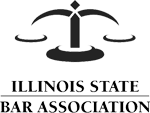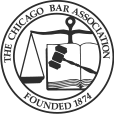
Shared rides, or "pools," offered by Uber and Lyft that were suspended due to COVID-19 are slowly returning to service.
In July, Lyft re-launched its shared ride option in three cities — Chicago, Detroit, and Philadelphia.
If you are in one of these metros you can split your Lyft with another rider. Unlike pre-pandemic conditions, when you could pack as many people into a Lyft pool as seating allowed, vehicle space is now limited for social distancing.
Shared rides are attractive because the fare rates are lower than solo rides. In exchange for the cheaper trip, shared riders sometimes have to wait for a driver to get enough people in the pool to make the drive worthwhile. Fare rates drop the longer people have to wait for their rides.
Pools were a growing part of Uber and Lyft's business before the pandemic hit. Executives at these rideshare companies have said that they see shared rides becoming up to 50% of their business, CNN Business reports.
Lyft and Uber rideshare services were available throughout the pandemic. The availability and demand for rideshare car trips declined, however, due to COVID-19 restrictions and infection concerns.
Rideshare 'Pools' and COVID-19
Lyft is being cautious in its return to offering shared rides. The rollout is limited and drivers can decide whether they want to provide the service. Among the precautions the Lyft drivers will be taking, according to the rideshare company, are:
- All riders and drivers must wear masks
- To allow for distance within the vehicle, shared rides can include no more than two riders in total
- No one can sit in the front or middle seats
- No eating or drinking during the ride
If a passenger or driver does not follow these new guidelines the other people in the vehicle can cancel the ride without penalty, according to Lyft's shared ride rules. Since February, it is mandatory that travelers in U.S. taxis, rideshares, planes, trains, buses, and other forms of public transportation wear masks.
Is Chicago Ready for Lyft Shared Rides?
The wisdom of Lyft's return to offering shared rides as COVID-19 continues to be a problem is debatable, safety advocates say. Even with the additional safety measures, strangers in the vehicle may still be able to pass the coronavirus to one another. The U.S. Centers for Disease Control and Prevention says that to limit the spread, taxi and rideshare drivers should not provide pooled rides.
People who support the move say that services like Lyft shared rides have to come back in order to support the reopening economy.
Meanwhile, in Chicago, COVID-19 cases are spiking. In early July around 30-35 cases were reported per day. By the end of the month, it had grown to 230 reported in one day. Cases are up significantly, but COVID-19 related deaths and hospitalizations have stayed low.
Uber, Lyft Laws Under Development
Rideshares like Uber and Lyft have quickly changed Chicago's transportation landscape, often replacing traditional taxis and buses. The move happened so fast, rules and regulations overseeing the industry are still being drafted, tweaked, and challenged.
That means that when an injury happens involving an Uber or Lyft — be it exposure, a car accident, vehicle malfunction, etc. — the laws governing liability are not so black and white. When you are injured or your rights are denied in a legal gray area, you need a knowledgeable, modern law firm that will fight for you.
Keating Law Offices, P.C., knows Chicago. We understand how the justice and insurance systems work here. We also understand how to work with evolving laws and stay one step ahead of the insurance companies that want to minimize or deny your injury claim.
No Case is Too Complex
Keating Law Offices, P.C., is a leading Chicago law firm. Founding attorney Michael Keating has a wealth of experience in shaping Illinois regulations through his legal practice. Among his accomplishments, attorney Keating represented the family of a cyclist whose death led to the passage of "Dennis's Law," which establishes bicyclist roadway rights.
If you were the driver or passenger in an accident involving an Uber or Lyft, contact us today for a free case evaluation. We have offices in Chicago on West Washington Street and North Milwaukee Avenue.







